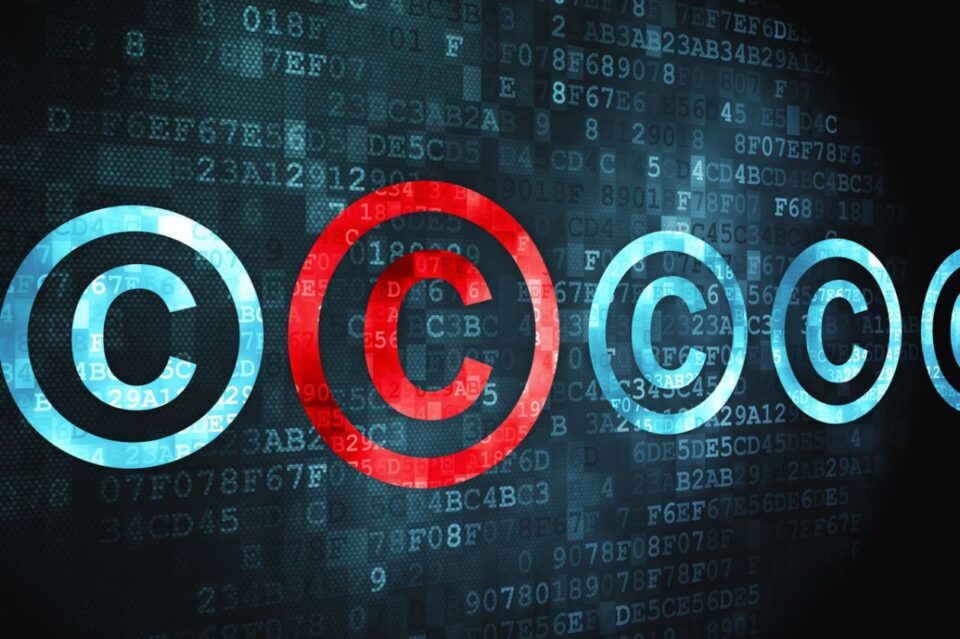IP Primer Series: Do I Need to Register for Copyright Protection?

Intellectual property laws can be confusing and overwhelming. To help you navigate this complex web, we offer an IP primer series to share the foundations of intellectual property laws, including patents, trademarks, copyrights, and trade secrets.
A copyright protects published and unpublished original works of authorship, including:
- Literary works (such as books, brochures, software, databases, websites, blogs, letters, emails, reports, manuscripts, written speeches, directories, newsletters, catalogs, and manuals
- Musical works (such as musical compositions and arrangements)
- Dramatic works (such as choreography, pantomimes, plays and scripts)
- Pictorial, graphic and sculptural works (such as advertisements, prints, labels, packaging, artwork, bumper stickers, decals, stickers, maps, globes, cartoons, comic strips, collages, dolls, toys, drawings, paintings, murals, fabric, floor and wall-covering designs, games, puzzles, greeting cards, postcards, stationery, jewelry designs, photographs, carvings, ceramics, figurines, molds, technical and mechanical drawings, architectural drawings, plans, blueprints, and diagrams)
- Motion pictures and audiovisual works (such as films, documentaries, television shows, videos such as webinars, presentations, and videogames)
- Sound recordings (such as music, spoken word, and lectures)
Limits on Copyright Protection
There are limits to copyright protection. Copyrights don’t protect:
- Works that have not been fixed in a tangible form of expression, such as improvisational speeches or performances that have not been written or recorded
- Ideas, procedures, methods, systems, processes, concepts, principles, discoveries, or devices
- Titles, names, short phrases, and slogans
- Common symbols or designs
- Facts and basic listings of ingredients or contents
- Works containing no original authorship, such as standard calendars, height and weight charts, tape measures, and rulers
- Works of the U.S. government, such as judicial decisions, federal statutes, reports, etc.
- Works in the public domain, including those subject to copyright expiration or dedication
- Certain content created by AI
When and Why to Register a Copyright
Although copyright registration is optional, registration is recommended for critical works for two key reasons. First, registration is a prerequisite to bringing a lawsuit for copyright infringement, so it is required to enforce copyright rights in court. Second, copyright registration provides a tangible designation on intangible rights.
Time is of the essence for copyright registration. In most cases, copyright owners will want to register for copyright protection before or within three months of first publication of the work or before an infringement starts, because prompt registration provides access to statutory damages (up to $150,000 for willful infringement) and recovery of attorney’s fees.
Ownership and Works Made for Hire
Generally, copyright ownership automatically vests in the author(s) of the work, with a key exception for works made for hire. Most commonly, these are works created by employees within the scope of their employment. For works made for hire, the employer automatically is deemed the author and owner of the work.
Works made for hire do not include works created by an independent contractor, with a few narrow exceptions. That is, works that fall into the “works made for hire” category are very narrowly defined. Accordingly, it is best practice to obtain written copyright assignments from all non-employee authors of works.
Be Careful of What You Find on the Internet (and AI)
Text and images (photographs, animations, video clips) that you find on the internet are likely not public domain. The rights in those materials are likely owned by the individual(s) that created the materials or their employer(s), or a person or entity to whom the rights have been assigned. Be aware of what you are using or copying from the internet or content that you “create” using AI because you may not have the right to use those materials. It is best practice to obtain materials from authorized sources using written agreements. There are numerous such sources available online.
Key Takeaways
Businesses should be aware of the common scenarios during which copyright works may be created and should consider copyright registrations for key works. For instance, if you are about to release or publish (or very recently released or published) a new product, advertising campaign, website, marketing collateral, etc., or you have developed custom software or other content, you should consider whether to register the copyright.
Additionally, if you are considering retaining outside assistance for a project by working with an independent contractor – such as a software programmer, website developer, graphic designer, advertising agency, consultant/specialist, product developer, architect, engineer, copywriter, blogger, or social media manager – you should consult with legal counsel to ensure that you obtain a written assignment of copyrights and all other intellectual property rights for works prepared in connection with the project’s scope.
If you have questions about copyright protection, please reach out to a member of our Intellectual Property Group.